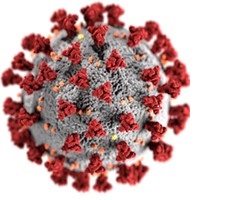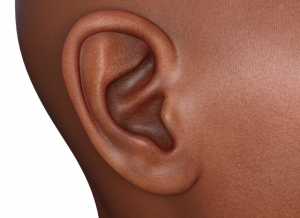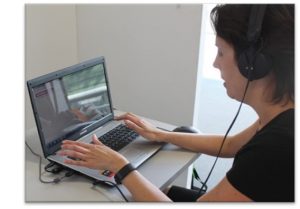March 29, 2021, by Adele Horobin
Help us find out if COVID-19 affects hearing, tinnitus and balance – please take part!
 The COVID-19 pandemic is ever evolving and research communities around the world have contributed a monumental effort into understanding more about this new virus, and the symptoms and side effects associated. It has been suggested that COVID-19 may possibly have an impact on hearing, cause or worsen tinnitus (ringing or other sounds in the ears) or affect one’s balance. Others have suggested that some treatments for COVID-19 may also affect hearing, tinnitus, or balance. However, the short and longer-term implications of COVID-19 for hearing health are largely unknown.
The COVID-19 pandemic is ever evolving and research communities around the world have contributed a monumental effort into understanding more about this new virus, and the symptoms and side effects associated. It has been suggested that COVID-19 may possibly have an impact on hearing, cause or worsen tinnitus (ringing or other sounds in the ears) or affect one’s balance. Others have suggested that some treatments for COVID-19 may also affect hearing, tinnitus, or balance. However, the short and longer-term implications of COVID-19 for hearing health are largely unknown.

Our team of researchers based in Nottingham are launching an in depth and ongoing study into the possible effects of COVID-19 on patients’ hearing, tinnitus and balance. The research project is sponsored by Nottingham University Hospitals NHS Trust (NUH) and will be run by the NIHR* Nottingham Biomedical Research Centre and the University of Nottingham.

Ropewalk House, with disabled parking bays available at the front entrance
The COVID and Hearing (CHEAR) study aims to recruit around 100 participants who have had COVID-19. They will be invited to attend a comprehensive hearing assessment using the dedicated and high-tech hearing research facilities at Nottingham University Hospitals NHS Trust’s Ropewalk House and the expertise of its staff in hearing diagnostics. All staff and visitors will be asked to take specific precautions to minimise the risk from spreading COVID-19, following NHS Trust guidance.
 We will then ask participants to take a short hearing test periodically over the next two years. This can be done online from participants’ own homes and does not need any specialist equipment. The test was developed here in Nottingham and is highly sensitive and specific.
We will then ask participants to take a short hearing test periodically over the next two years. This can be done online from participants’ own homes and does not need any specialist equipment. The test was developed here in Nottingham and is highly sensitive and specific.

Professor David Baguley
Lead and Chief Investigator for the study, Professor David Baguley, said: “There has been a steady flow of reports of hearing loss, tinnitus, or imbalance following COVID-19 infection and treatment, and the CHEAR study represents a huge opportunity to investigate this. The Hearing Theme of the Nottingham Biomedical Research Centre are ideally placed to explore these issues, and with the information gleaned to design and implement new pathways to rapid hearing and balance care.”

Charlotte Caimino
Charlotte Caimino, Research Assistant and Study Co-ordinator, is working with Paul Bateman, Research Audiologist and a team based at Ropewalk House, to deliver the study. She said: “I’m excited to be involved in this study. We’ve worked hard on the study structure to produce the best results we can, so I’m looking forward to welcoming volunteers and starting work formally on our CHEAR study this spring.”
People who have had COVID-19 and would like to be involved in the research should contact Charlotte Caimino, by email:
Charlotte.Caimino@nottingham.ac.uk. Thank you.
*NIHR – National Institute for Health Research. This is the research arm of the NHS.
No comments yet, fill out a comment to be the first

Leave a Reply